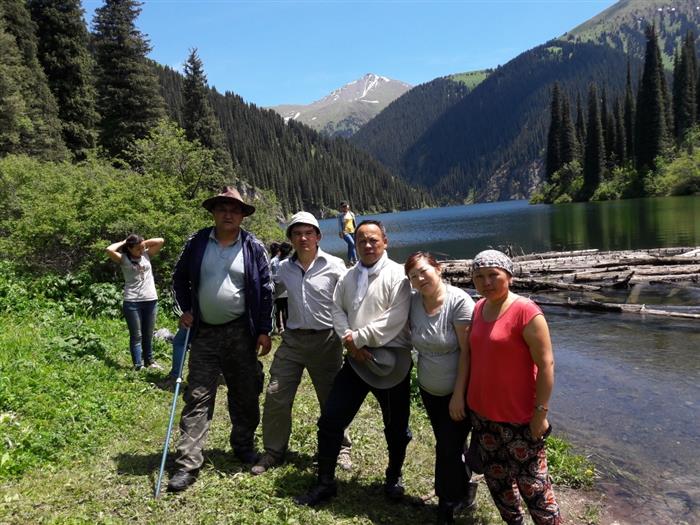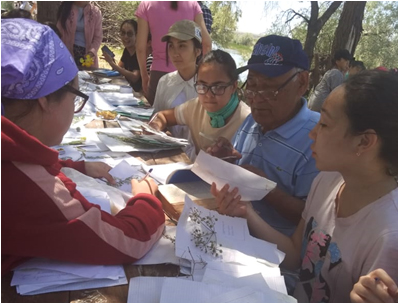Conservation of terrestrial ecosystems
Views: 444

The fifteenth part of the sustainable development goal is dedicated to the conservation of terrestrial ecosystems. For these purposes, in accordance with the state standard and curriculum, 1st year students of the specialties: «6B05102 - Biology», «6B05102 - Biology (NIS)», «6B05108 - Biomedicine», «6B05109 - Neuroscience», «6B05103 - Biotechnology», «6B05103 - Biotechnology (NIS)», «6B05110 –Zoology», «6B05101 - Biological Engineering», «6B05107 - Microbiology», «6B05105 - Genetics», «6B08401 - Fisheries and industrial fishing» go on field training.
In the discipline Botany: introducing students to biotopes in which various plants grow. Mastery of field research methods, i.e. visual observation, study of methods for collecting and storing herbariums (labeling, storage, ability to clearly determine belonging to families, genus, species), and daily filling out a diary of educational field practice.
Learn to work with keys, compile a list of species, and know the characteristics of individual biotopes. Studying methods of drying, storing herbariums, and collecting plants. Be able to create equipment for collecting basic material, know the rules of independent research work: and fill out and report daily.
In the discipline of Zoology: students solve the problems of mastering research methods of educational field practice: visual control, counting the number of animals, methods of collecting and processing materials (fixation, labeling, storage of animals, the ability to clearly identify the main types of vertebrate and invertebrate animals of each biotope) and fill out daily field diary.
Learn to work with keys, and know the species composition of vertebrates and the most common species of invertebrate animals. Knowledge of their biotopes that live in the summer. Ability to use equipment to collect basic material on invertebrate and vertebrate animals. Know the methods of killing and processing collected animals. Knowledge of the rules of independent research work: daily completion and reporting.
Ensuring that these targets are met contributes to achieving sustainable development goals.
Head of the practice: Tynybekov B.M.


Chair of biodiversity and bioresources








